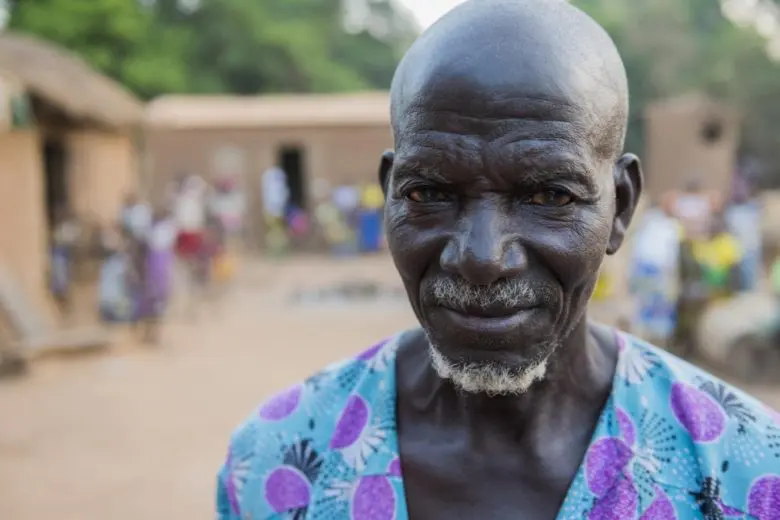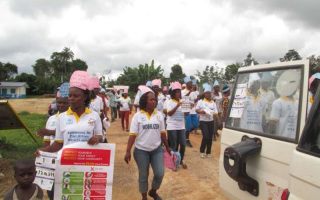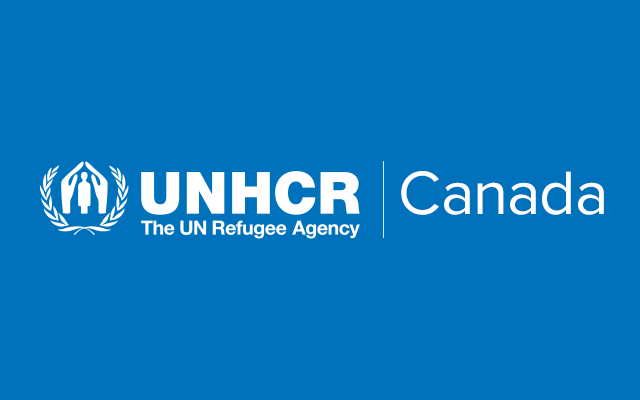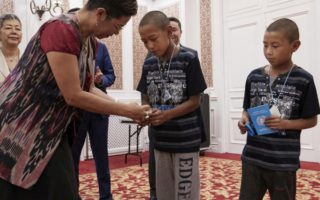
Ngolo Silué was among people registered at a UNHCR-supported documentation drive for villagers at risk of statelessness in Olleo, Côte d’Ivoire, February 2019. © UNHCR/Mark Henley
UNHCR, the UN Refugee Agency, welcomes Côte d’Ivoire’s adoption this week of Africa’s first Statelessness Determination Procedure. This will help protect thousands of people in the country who are without a nationality.
Two regulations signed on 2 September formally establish procedures that will regularize the status of stateless people and fulfil a crucial component of Côte d’Ivoire’s National Action Plan, in line with the country’s pledge at UNHCR’s High-Level Segment on Statelessness.
Formal recognition of statelessness status will pave the way for people – who until then had no recognized legal existence – to receive identity documents, enroll in school, access health services, seek lawful employment, open a bank account, and buy land.
“This is a huge leap forward. We commend the bold action taken by Côte d’Ivoire and its firm commitment to tackle this issue,” said Aissatou Ndiaye, Deputy Director for UNHCR’s Bureau for West and Central Africa.
“This significant milestone will help protect stateless people, allowing them to access basic rights which have remained out of reach for decades,” she said.
Statelessness blights the lives of millions of people around the world, depriving them of basic rights. In 2014, UNHCR launched a global ‘#IBelong’ Campaign, aimed at ending statelessness within a decade.
A 2019 study led by national authorities and supported by UNHCR identified 1.6 million people as stateless or at risk of statelessness in Côte d’Ivoire, which hosts one of the world’s largest stateless populations.
The risks for stateless people have been amplified during the COVID-19 pandemic as they can be left out of national responses or be unable to seek care if they fall ill.
In recent years, the Government of Côte d’Ivoire has stepped up action to end statelessness consistent with its accession in 2013 to the two Statelessness Conventions and the adoption of the Abidjan Declaration on the Eradication of Statelessness by the Economic Community of West African States (ECOWAS) in 2015.
In 2017, ECOWAS Member States made West Africa the world’s first region to adopt a binding Plan of Action to end statelessness. Cote d`Ivoire has also adopted a National Plan of Action against statelessness and enacted important legal and institutional reforms to prevent individuals from becoming stateless.
Authorities in Côte d’Ivoire have now established two committees to identify stateless people in need of protection, before a lasting solution is found to their predicament.
“Côte d’Ivoire is showing an example for other countries in Africa to follow,” said Angèle Djohossou, UNHCR Representative in Côte d’Ivoire. “Challenges in the country remain and efforts must now be redoubled to ensure everyone in the country has a nationality,” she added.
UNHCR is closely supporting national authorities to help prevent and resolve statelessness and stands ready to assist Côte d’Ivoire in implementing its Statelessness Determination Procedures.
Nine more West and Central African countries have also pledged to put in place similar procedures, and 11 countries from the region have launched studies on statelessness or included questions to collect data on statelessness in upcoming population censuses.
Some 4.2 million stateless people are reported in 76 countries, but UNHCR believes the actual number to be significantly higher.
Since UNHCR launched its #IBelong Campaign launched six years ago, 95 governments, civil society and international and regional organizations have made commitments to tackle statelessness.
For more information on this topic, please contact:
- In Dakar, Romain Desclous, desclous@unhcr.org, +221 786 396 385
- In Abidjan, Daouda Guirou, guirou@unhcr.org, +225 0643 0761
- In Geneva, Shabia Mantoo, mantoo@unhcr.org, +41 79 337 7650
- In Geneva, Boris Cheshirkov, cheshirk@unhcr.org, +41 79 433 7682
Originally published by UNHCR on 04 September 2020





